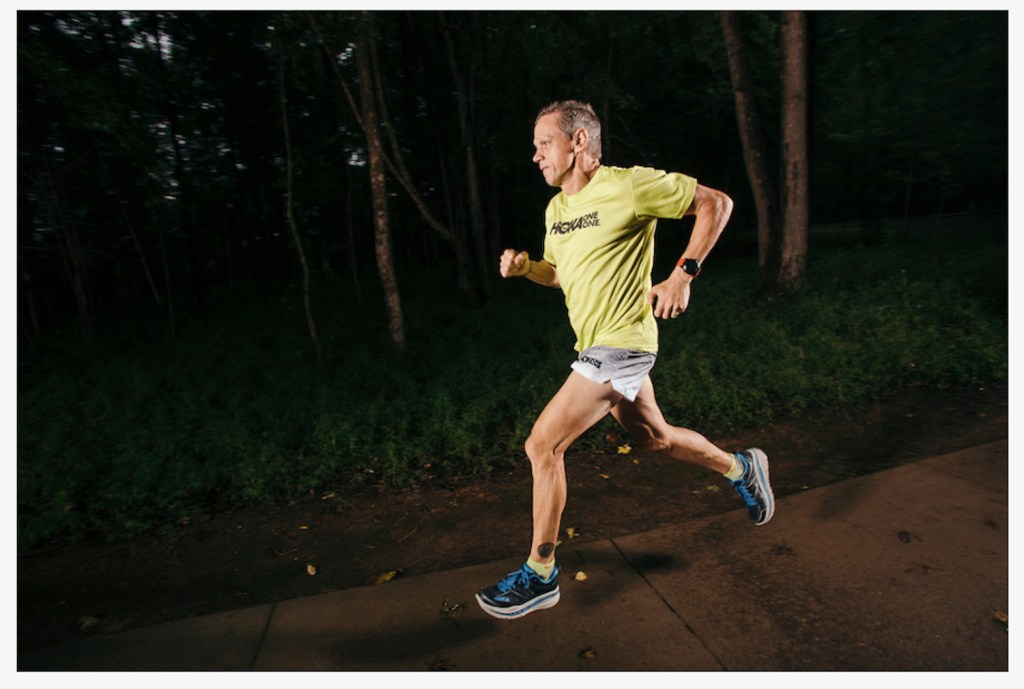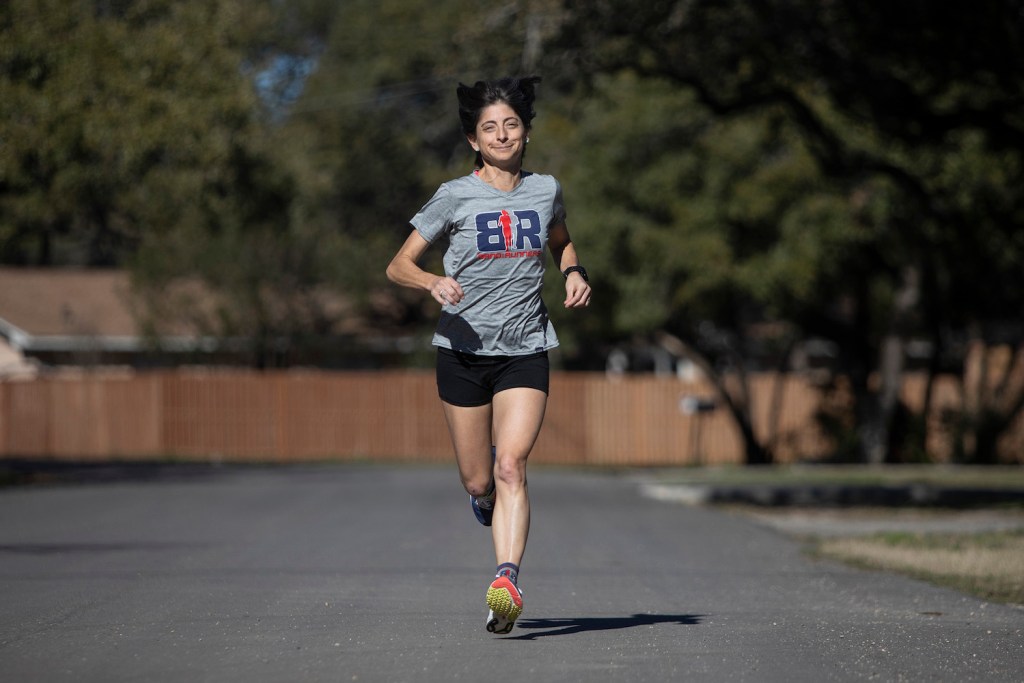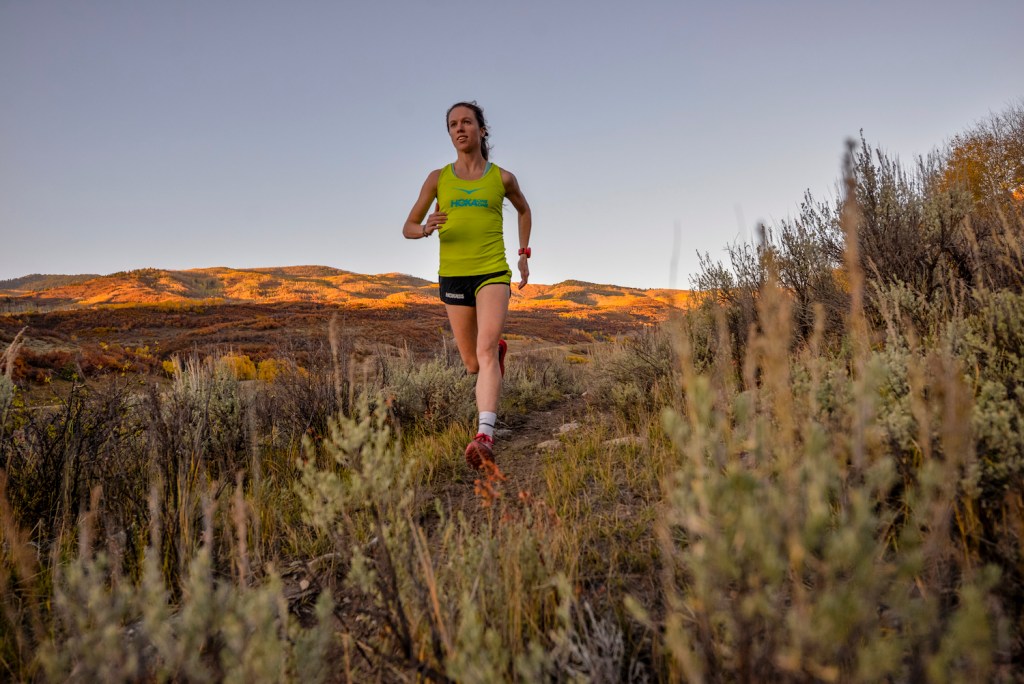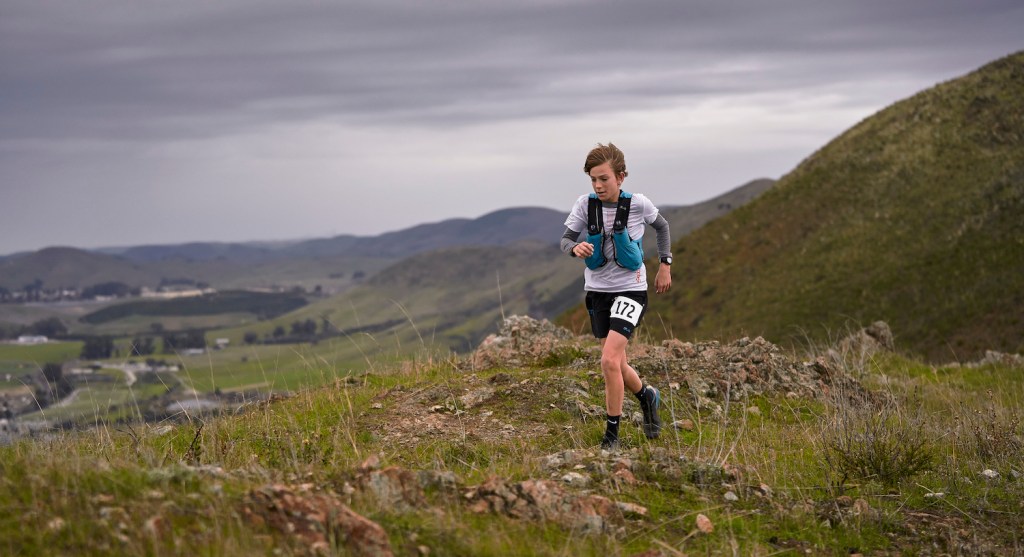You can make up every excuse in the book not to go for a run. You’re too tired. You have too much to do. The weather stinks. You just don’t feel like it. But your age? That’s no excuse at all. To prove that point, we tracked down five runners—from a teenager to a near centennial—whose lives have been changed and improved by their regular commitment to running. We asked them: What gets you up and lacing up those shoes every day? Here’s what they said.
It’s Never Too Late to Start
George Etzweiler was 49 years old before he ran his first mile. A World War II U.S. Navy veteran who was then a professor of electrical engineering at Pennsylvania State University, Etzweiler was overweight and chronically tired. At the suggestion of his colleagues, Etzweiler began running a mile during lunchtime.
His wife, Mary, started running with him, too, and later, when her health declined, she cheered for him at races. At age 69, Etzweiler ran his first Mount Washington Road Race in New Hampshire, a stout 7.6-mile climb up 4,650 feet to the tallest peak in the Northeast.
When he was 75, Etzweiler returned to the Mount Washington Road Race and has competed in (and completed) the event every year since. He’s now 99 and though his wife passed away eight years ago, he said the memory of her unconditional support keeps him pushing forward even when he’s questioning his ability.
“Since Mary’s death [running] has become a spiritual thing,” said Etzweiler. “When I’m going up the mountain I’m thinking, ‘Why in the world am I doing this,’ and, ‘I’m never going to do this again,’ and a half hour later I’m rested enough and saying, ‘Well, that wasn’t so bad. I’m sure going to try next year.’”
Etzweiler is the subject of the film For the Love of Mary, which is currently on the Banff World Tour. He runs three times a week and plans to toe the line again at this year’s Mount Washington Road Race, taking place June 15.
Take One Mile at a Time

Charlie Engle, 56, has been through a lot in his life. Running has always been a constant. (Photo courtesy of Charlie Engle)
Charlie Engle’s life has been defined by extreme highs and soul-crushing lows. The 56-year-old Wilmington, North Carolina, ultrarunner has podiumed at notoriously grueling adventure races and ultras like the 250K Gobi March in China and the Badwater 135. In 2006, he and two other runners became the first to run 4,300 miles across the Sahara Desert, an adventure that was chronicled in the Matt Damon-produced documentary Running the Sahara.
But Engle has also battled his fair share of demons, most notably a decade-long addiction to crack cocaine and alcohol. In 2011, years after he had committed to sobriety and running, Engle was sentenced to 21 months in a minimum-security prison for alleged mortgage fraud. Even then he kept running, once completing 540 laps on the prison track during the same day in July as that year’s Badwater.
Through it all, Engle has maintained the mantra he has tattooed on his wrist: no big deal. “The only way forward is one step at a time and as cliché as it sounds, the biggest change for me was when I understood I could only run one mile at a time,” said Engle. “If I just focus on what’s right in front of me, experience tells me that continuous forward movement will get me where I want to go, that things will get better, and I trust that.”
Engle is currently training to take on seven consecutive multisport adventures from the lowest to the tallest points on each of the seven continents, beginning in Africa in September 2019.
Show Up, Always

Liza Howard, who’s 47, says showing up is the hardest part of running. (Photo Credit: Lisa Krantz)
Liza Howard might have found running later in life, but she wasted no time making her mark on the running world. The 47-year-old San Antonio, Texas, runner has crushed the competition at countless classics, with wins at races like the Leadville 100, the Umstead 100 and the Javelina Jundred, with a handful of USA National Championship titles to boot. Last spring, she won the 100K National Championship at the Mad City 100K in Madison, Wisconsin, which earned her a spot on the USA 100K National Team.
As if balancing the demands of a professional runner isn’t enough, Howard is also a mother of two, a coach, a National Outdoor Leadership School instructor and the founder of Band of Runners, a nonprofit that introduces veterans to running. Her life is hectic at best, her training often sporadic. Over the years, Howard has learned that just showing up can be the hardest, and most crucial, part of staying motivated.
“If you keep showing up then you will progress,” said Howard. “Keeping it simple like that is something every runner can latch onto no matter what point in their running they are. Whether it’s 15 minutes or 50 miles, just show up for what you set up for yourself. Everything counts.”
Howard is training for Badwater 135 this year and plans to complete the Run the Red Desert marathon in Wyoming in September with her son Asa.
Listen To Your Body

Anna Mae Flynn, who’s 32, found her way back to running after an injury. (Photo Credit: Randall Levensaler)
By the time Anna Mae Flynn of Banner Elk, North Carolina, was in college, she was starting to feel burnt out on running. Having competed in cross-country and track throughout high school and during her first years at Elon University, Flynn was weary from the pressure she put on herself. When a car ran over her in a freak accident during summer break, forcing her to quit the team, Flynn took it as a sign that running just wasn’t her thing.
Flynn eventually found her way back to running after a canceled Ironman led her to sign up last-minute for her debut ultra, the Way Too Cool 50K. In 2016, she came in third at the Lake Sonoma 50 in a stacked field of fast women. But a few months later, having received a Golden Ticket to Western States, Flynn dropped out of her first 100-miler.
After a raging year in 2017 when she won (and set a record) at the Speedgoat 50K and put up a new fastest known time for the Maroon Bells Four Passes Loop, Flynn still felt the gnawing, unsettling need to do better, be faster. She dialed back the intensity of her training and focused more on listening to what her body, not her ego, needed.
“For me as an elite athlete that’s been the hardest part,” said Flynn, who’s 32. “The letting go of expectations and going into a race believing in yourself, not that you’re going to win but that you’re going to celebrate all of the hard work you’ve put in. It doesn’t happen overnight. Hold back, resist, listen to your body. There are no shortcuts to achieving your goals, in life, in work, or in ultrarunning.”
Flynn recently won the Lake Sonoma 50 Miler and another Golden Ticket to Western States, which she plans to tackle again this June.
Remember to Have Fun

Sebastian Salsbury, now 13, started running trail races with his dad when he was nine. (Photo Credit: Kaori Photo)
Even at 9 years old, Sebastian Salsbury of Santa Barbara, California, was already showing signs that he’d be faster than his father, Mike. At his first trail race, the Santa Barbara Red Rock Marathon, Salsbury was required to run with his father due to his young age. In subsequent races like the Santa Barbara Nine Trails and the Born to Run Ultra, they continued to run together, though it was soon obvious Salsbury was holding back. When his father fell and broke his wrist in the 2017 Nine Trails, Salsbury finished out the final third of the brutal 35-mile course solo. He was only 11 years old.
Under the guidance of coach Tyler Hansen and countless other mentors like running legends Max King and Luis Escobar, Salsbury, now 13, has since cruised through a number of trail races. At last year’s Broken Arrow Skyrace Vertical K in Squaw Valley, he placed first in the under-18 category. His finishing time of 15 hours, 49 minutes and 32 seconds at this year’s Black Canyon 100K made him the youngest known Western States qualifier in history (though it’s unclear whether or not the race will allow him to enter the lottery).
At the heart of it all, said Salsbury, is a very simple premise. “Don’t take it too fast,” he said. “If you ever feel you’re not having fun, just stop. You should always be having fun.”
